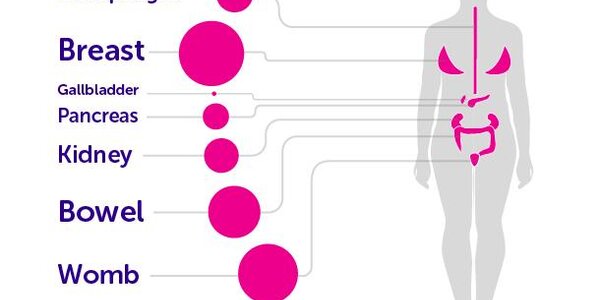Obese Women Far More Likely To Get Cancer
Obese women have greater risk of developing a weight-related cancer in their lifetime than women of a healthy weight, according to new statistics. Obesity increases a woman's risk of developing at least seven types of cancer - including bowel, post-menopausal breast, gallbladder, womb, kidney, pancreatic and esophageal cancer - and in a group of obese women, 274 will be diagnosed with a bodyweight-linked cancer in their lifetime, compared to 194 women diagnosed in a group of 1,000 healthy weight women. A 40 percent higher rate.
The figures released by Cancer Research UK today…





